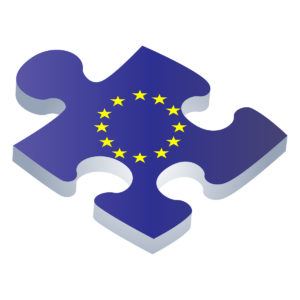Many theorists and politicians believe that new order is emerging that is not unique to the handful of hegemons of the past. Many may have declared that a Cold War has broken out between the small and large hegemons of the world.
Regional arrangements and treaties have become more prominent with the start of the new Cold War between regional and global powers. In the meantime, it may be possible to emphasize the support of different countries in each region to gain more control over the situation in their areas and the withdrawal of foreign forces.
Suppose we want to start with the old and global hegemons. In that case, we must mention that the United States does not want to hand over its position as the world power leader to any other country. Other powers will lead to a transformation in a unipolar order.
In an arrangement, the United States, with its military and economic power, has withdrawn from some proxy wars and ceded some of them to its allies to focus more on competing with China. It has reduced regional and global to have regional hegemons by its side. In other words, America’s political priority has shifted to a strategic turn in the East to maintain its supremacy, to overtake Beijing, and to put a brake on China’s economic power.
Since the beginning of its international relations in the new era, Europe has pursued its interests alongside the United States. It has tried to stand by the United States; it has spoken out as well as against China.
Although it has had some independent moves from the United States, Europe has seldom, if ever, been in the realm of theory. However, there are tensions between European countries. This tension is considered a good opportunity for China to use its ability to increase trade and economic investment between countries within Europe and take the 17 + 1 plan to the next steps.
Opposite Europe in this are Moscow and Beijing, which, although cooperating in the past, have now called for more power to unite against rivals. It is no secret that China is now the world’s economic power and is at the forefront of economic growth and development. This economic power is now aligned with Russia in some respects. They are inadvertently in a similar situation. They need to increase cooperation to compete with the named competitors.
As a significant military power, Moscow is trying to play a greater role in international affairs to gain the control it wants. Tensions between the United States and Russia are intense after the U.S. pushed massive sanctions against Russia for its unprovoked invasion of Ukraine.
Regarding the relations between Russia and Europe, despite the complete distrust from 2014 onward, the two entities have relations regarding oil and gas resources. This is considered an acceleration, albeit with a slight slope, in the relations between the two because economically they need each other.
On the other hand, in economics Russia and China have taken steps such as efforts to reduce the elimination of the dollar, increase bilateral exchanges with national and non-dollar currencies, and increase trade between the two countries in 2024 by $200 billion.
The new arrangement of small and large hegemons is highly perceptible and observable. Now more than ever, the world powers rotate their interests around the Middle East. In the meantime, critical regional powers have also developed that can be influential. They do not want the global powers to be the same as in the past. This arrangement is not strategically but tactically to make each actor taller.
The various hegemons are always moving in a direction that will further their interests and gain a more powerful position. For this reason, among the strategies of some countries in the region we sometimes see convergence with one country and sometimes confrontation with the same government, which is due to the influence of their interests.
In the regional arena, hegemons have emerged that try to create a hegemonic and more substantial face in all dimensions. It remains to be seen to what extent the conditions will be created for them to act in the arena of regional and global powers. Meanwhile, critical regional authorities have also developed that can be influential. They do not want the international power arrangement to be the same as before.

